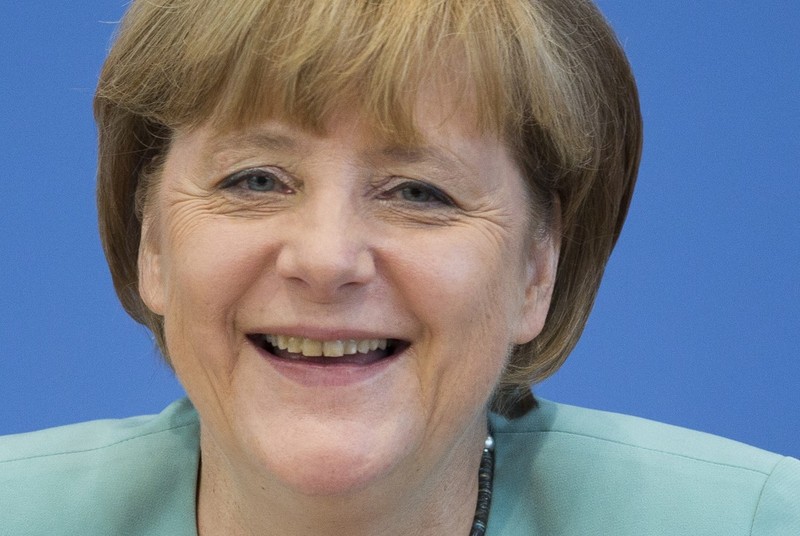
With no major U.S. elections this year, the world is turning its attention to the second most important election in the world, which will occur on September 22: The election of Germany's parliament (i.e., the Bundestag). Germany has been the dominant player in the Eurozone crisis; essentially, nothing gets done without Angela Merkel's expressed consent. It is probably for that reason that Forbes has her ranked as the #2 most powerful person in the world.
Similar to other parliamentary systems, the people do not choose the head of government (in this case, "Chancellor") directly. So the outcome of the parliamentary election will directly determine Ms. Merkel's fate.
Having been elected in 2005 and again in 2009, Ms. Merkel is running for a 3rd term. And currently, she is sitting pretty: Her center-right party, the Christian Democratic Union (CDU) is polling at 41 percent, according to the latest poll (8/11/2013) reported by Der Spiegel. The CDU's major rival, the center-left Social Democratic Party (SPD), is trailing badly, polling a mere 25 percent.
But that's where the good news ends for Ms. Merkel.
Currently, she presides over a coalition government consisting of her own CDU, plus the CDU's center-right sister party called the Christian Social Union (CSU), which is based in Bavaria, and the center-right Free Democratic Party (FDP). But the FDP is in serious danger of not meeting the 5 percent threshold required for entry into the Bundestag. Furthermore, in both of her previous victories, support for Merkel's CDU party shrank in the days prior to the election.
While it is widely assumed that Mrs. Merkel will ultimately prevail, that prediction is far from certain. The latest poll shows:
41% CDU-CSU (center-right)
25% SPD (center-left)
13% Greens (center-left)
8% Left (left-wing)
5% FDP (center-right)
If the FDP fails to reach the 5 percent threshold, then Ms. Merkel could be in serious trouble. Although the SPD has sworn off ever forming a coalition government with the Left Party (which has ties to communism), they do work together at the state level. So, it is not inconceivable that a center-left coalition, including the left-wing Left Party, could form a government, ousting Ms. Merkel.
In Ms. Merkel's first term, she presided over a "grand coalition" between her center-right CDU party and the center-left SPD party. However, SPD has sworn off doing that again, as well.
If Ms. Merkel is unable to form a coalition government after the election, then her fate may very well come down to SPD, who has refused to work with either Ms. Merkel or the Left Party. Keeping both of those promises seems highly unlikely.
If given the opportunity to govern again with the incredibly popular Ms. Merkel, that may be an opportunity too good for the SPD to pass up.
(AP image)
